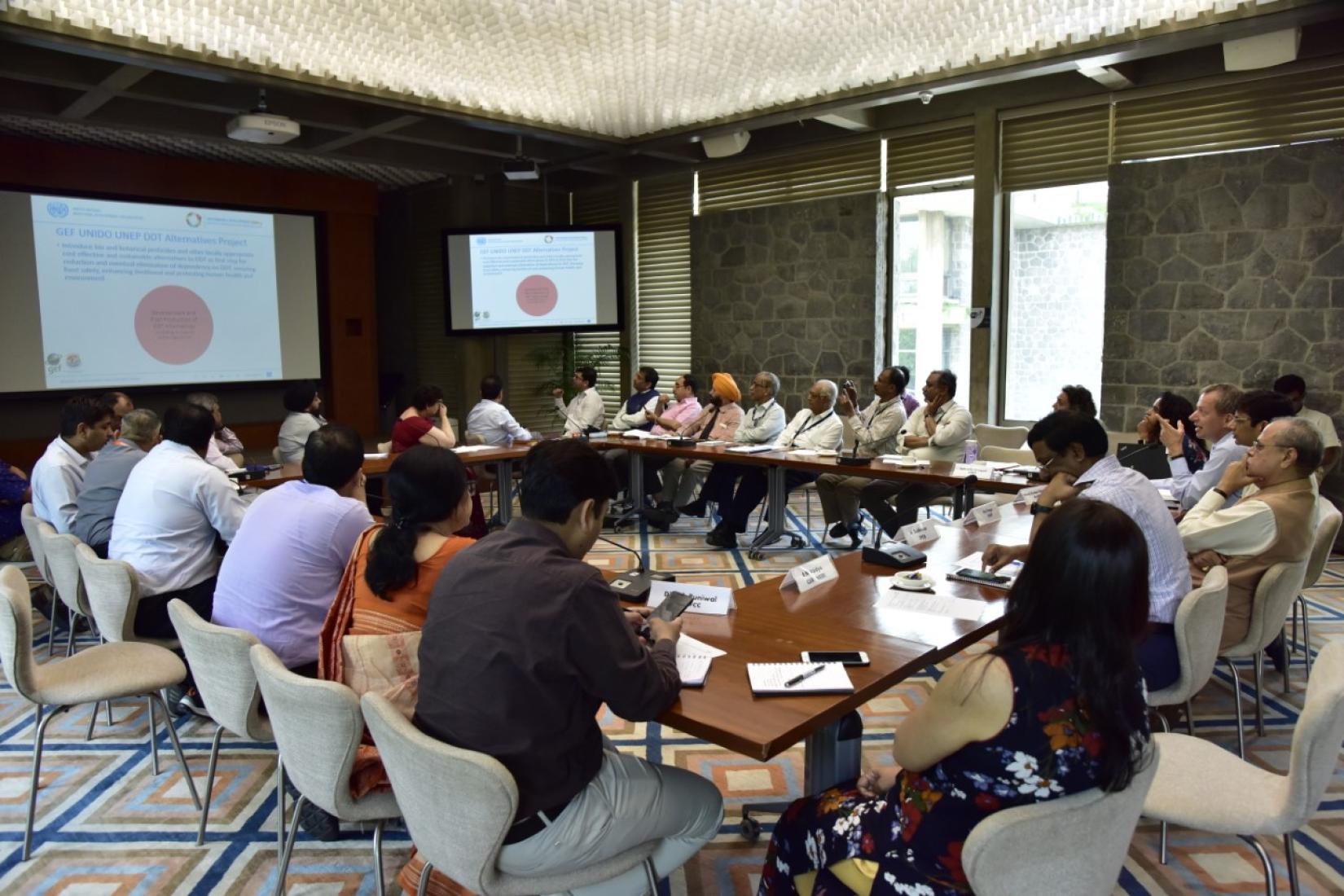India Gears up for non-POPs alternatives to DDT
17 May 2019
India Gears up for non-POPs alternatives to DDT
· United Nations Environment Programme (UNEP) and Central Pollution Control Board (CPCB), India convenes…

India Gears up for non-POPs alternatives to DDT
· United Nations Environment Programme (UNEP) and Central Pollution Control Board (CPCB), India convenes inception meeting of GEF funded project on “development and promotion of non-Persistent Organic Pollutants (POPs) alternatives to DDT.
· The project aims to reduce production, use and consumption of DDT through development of non-POPs alternatives
· Help India meet its commitment of the Stockholm Convention on Persistent Organic Pollutants (POPs)
New Delhi, India, May 17, 2019 – The United Nations Environment Programme (UNEP) and Central Pollution Control Board (CPCB), India have convened the inception meeting of Global Environment Fund (GEF) funded project on ‘Development and Promotion of non-POPs alternatives to DDT.’
The project aims to reduce the production, use and consumption of DDT through the development of non-POPs alternatives and thus support the obligations under the Stockholm Convention in India. The project can help set an example for other countries, especially African nations, where in DDT for vector control is still used widely.
United Nations Environment Programme (UNEP) and United Nations Industrial Development Organization (UNIDO) are the GEF implementing agencies for the project. It has following components being led by respective agencies:
• Legislation, policy framework and institutional capacity – UNEP
• Alternatives to vector control UNIDO
• Promotion and propagation of new cultivars of Neem - UNIDO
• Development and Promotion of Integrated Vector Pest Management - UNEP
• Monitoring and evaluation of results - UNIDO & UNEP
“This project is of national importance as the alternatives developed will be environment friendly and sustainable. The project will also provide training to various stakeholders involved in application of DDT and its alternatives,” said Atul Bagai, Head of UN Environment, India.
“India is committed towards meeting the obligations of the Stockholm Convention and we look forward to the outcomes of the project to develop cost effective and eco-friendly alternatives to DDT” said Mr. Manoj Kumar Gangeya, Director, Ministry of Environment, Forest and Climate Change.
Dr. A.N. Vaidya, Chief Scientist, CSIR-National Environment Engineering Research Institute said, “In India, DDT is being used for vector in the National Vector Borne Disease Control Programme (NVBDCP) under the Ministry of Health and Family Welfare (MoHF&W) and the project is focusing on the developing non-POPs alternatives to DDT along with associated guidance material.”
Mr. A Sudhakar, Central Pollution Control Board said, “This project is critical as it will help India meet its obligations under the Stockholm Convention to phase out DDT.” The project will be
implemented with the support of local partners in consultation with the Ministry of Environment, Forests and Climate Change.
Total production of DDT in India, as reported by Hindustan Insecticides Limited, was 2910 MT in the year 2018-19. The Government of India ratified the Stockholm Convention on Persistent Organic Pollutants (POPs) in 2006 and Ministry of Environment, Forests and Climate Change was designated as the National Focal Point for the implementation of Convention. India has already submitted its National Implementation Plan (NIP) to the Secretariat of the Stockholm Convention in April 2011. Development and promotion of non-POP alternatives to DDT is one of the priorities for a post-NIP programme that needs immediate attention and action and this project is addressing this priority issue.
NOTES TO EDITORS
About UN Environment
UN Environment is the leading global voice on the environment. It provides leadership and encourages partnership in caring for the environment by inspiring, informing, and enabling nations and peoples to improve their quality of life without compromising that of future generations. UN Environment works with governments, the private sector, civil society and with other UN entities and international organizations across the world.
About Central Pollution Control Board
The Central Pollution Control Board (CPCB), statutory organization, was constituted in September 1974 under the Water (Prevention and Control of Pollution) Act, 1974. Further, CPCB was entrusted with the powers and functions under the Air (Prevention and Control of Pollution) Act, 1981. It serves as a field formation and also provides technical services to the Ministry of Environment, Forests and Climate Change of the provisions of the Environment (Protection) Act, 1986. Principal Functions of the CPCB, as spelt out in the Water (Prevention and Control of Pollution) Act, 1974, and the Air (Prevention and Control of Pollution) Act, 1981, (i) to promote cleanliness of streams and wells in different areas of the States by prevention, control and abatement of water pollution, and (ii) to improve the quality of air and to prevent, control or abate air pollution in the country.
For more information, please contact: Jasleen Dhanota Kanwal, UN Environment, India Country Office, jasleen.dhanota@un.org

















